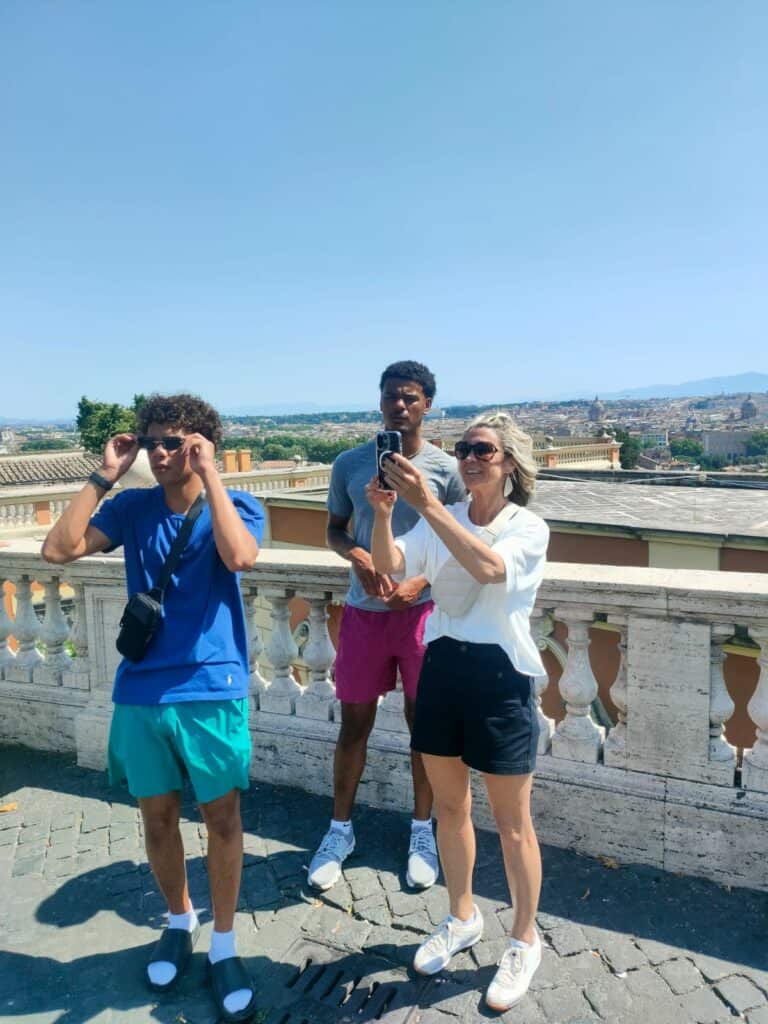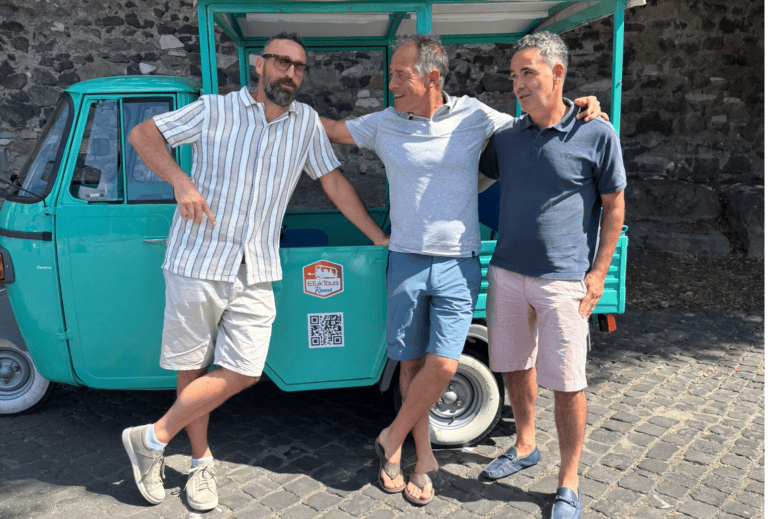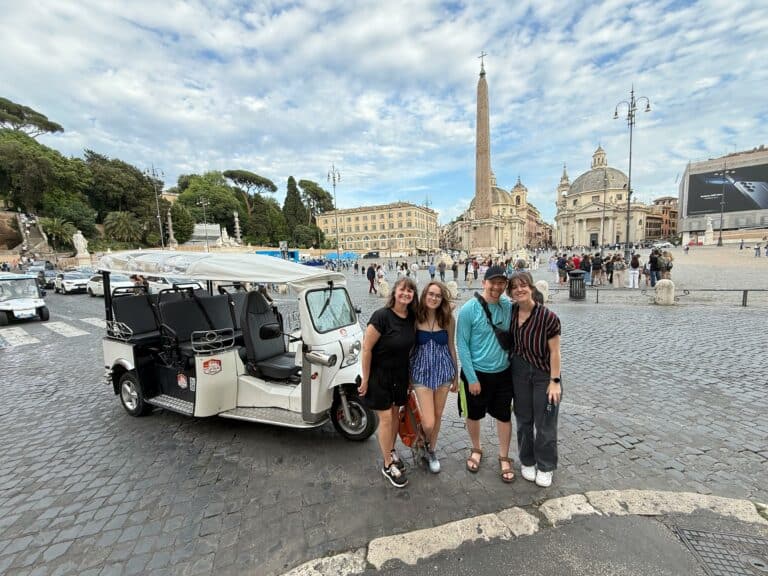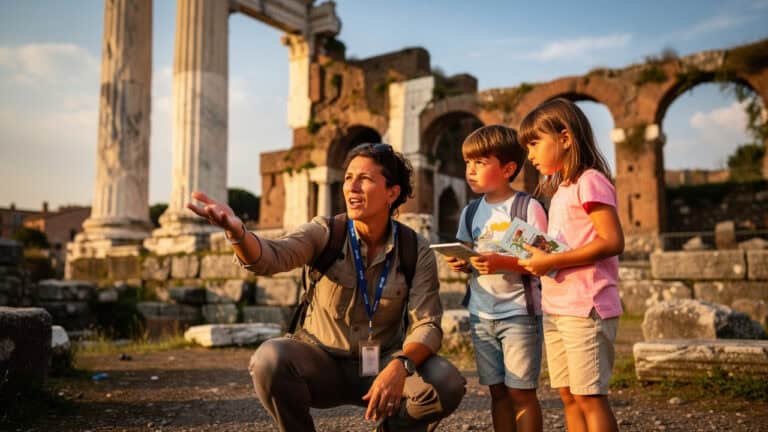Rome’s Colosseum, a symbol of history, culture, and the awe-inspiring power of ancient engineering, now finds itself at the center of a modern-day debate. The reason? Airbnb’s controversial partnership that allows selected tourists to step into the sandals of gladiators and engage in staged battles within the amphitheater. While some applaud this initiative as a unique way to connect with history, others criticize it as a crass commodification of heritage.
Let’s explore both sides of the argument and uncover the deeper implications of this bold experiment.
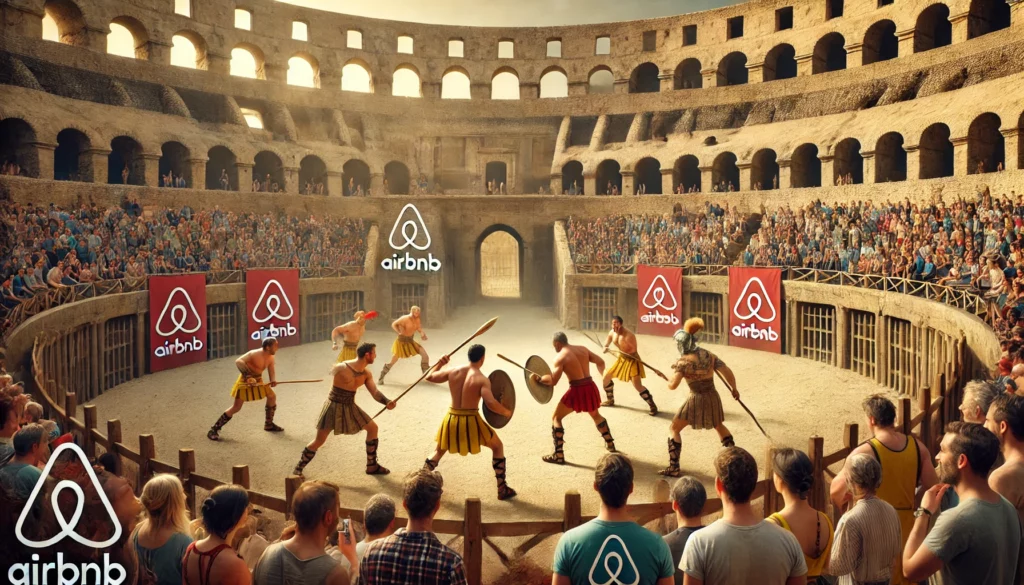
The Proposal: Tourism Meets History
Airbnb’s $1.5 million collaboration with the Colosseum Archaeological Park includes funding educational programs about the lives of gladiators and Rome’s ancient past. As part of the deal, eight lucky participants, chosen through a lottery system, will don authentic gladiatorial armor, traverse the historic underground chambers, and engage in mock battles within the arena itself. The idea is to create an immersive experience that promotes “conscious tourism,” blending history with engagement.
This initiative coincides with the release of Ridley Scott’s Gladiator II and follows similar sponsorships that have financed the preservation of the Colosseum, such as the Tod’s fashion brand’s multimillion-dollar renovation efforts. Proponents argue that partnerships like these are essential for maintaining and restoring historic monuments in an era of shrinking public funding.
The Praise: A Modern Connection to the Past
Supporters of the Airbnb initiative see it as an exciting way to bring history to life. Instead of passively gazing at ruins, participants will have the rare opportunity to walk in the footsteps of ancient gladiators, deepening their connection to Rome’s storied past.
Alfonsina Russo, superintendent of the Colosseum Archaeological Park, defends the campaign as a meaningful step toward engaging new audiences. She emphasizes that creative sponsorships like this provide much-needed funds for restoration projects while educating visitors about the Colosseum’s significance.
For many tourists, this initiative represents a once-in-a-lifetime opportunity to experience the thrill and drama of ancient Rome in an authentic setting. After all, isn’t tourism about creating memorable experiences?
The Criticism: Trivializing History?
Not everyone is enamored with the idea of tourists role-playing as gladiators in one of the world’s most revered landmarks. Critics argue that the Colosseum is a sacred historical site, not a stage for theatrical reenactments. Transforming it into a playground for mock battles, they say, risks trivializing its immense cultural and historical significance.
Local activist Alberto Campailla describes the initiative as “a disgrace” and an example of overtourism and commercialization. He raises concerns about Airbnb’s role in contributing to housing shortages and the increasing “touristification” of Rome.
Others share similar apprehensions. A Madrid-based tourist, Jaime Montero, likened the initiative to turning the Colosseum into an “amusement park,” warning against blurring the lines between education and entertainment. Meanwhile, Neapolitan visitor Salvatore Di Matteo fears that the campaign represents a corporate takeover of heritage, reducing sacred monuments to mere marketing props.
The Broader Context: Striking a Balance
The debate surrounding Airbnb’s Colosseum deal reflects larger tensions in modern tourism: how to preserve heritage while making it accessible and engaging. Rome is no stranger to this challenge. As one of the most visited cities in the world, its historic landmarks must withstand millions of tourists each year, a reality that strains resources and sometimes compromises the visitor experience.
Innovative campaigns like Airbnb’s offer creative solutions to fund preservation and draw attention to cultural heritage. However, they also underscore the need for ethical considerations in tourism. How far should we go to make history “interactive”? At what point does engagement overshadow respect?
Conclusion: A Careful Step Forward
The Colosseum stands as a testament to Rome’s enduring legacy—a reminder of its architectural genius and cultural depth. Initiatives like Airbnb’s gladiatorial experience may breathe new life into these ancient stones, but they must tread carefully. Respect for the site’s historical integrity should remain paramount, ensuring that its legacy is honored, not diluted.
At ETukToursRome, we believe in striking this balance. By offering eco-friendly guided tours that explore Rome’s iconic landmarks, we aim to connect visitors with history in a way that’s immersive yet respectful. The Eternal City’s stories deserve to be told with reverence, not theatrics.
What’s your take? Should history be reimagined for the modern traveler, or should sacred landmarks like the Colosseum be left untouched? Let us know in the comments below!



